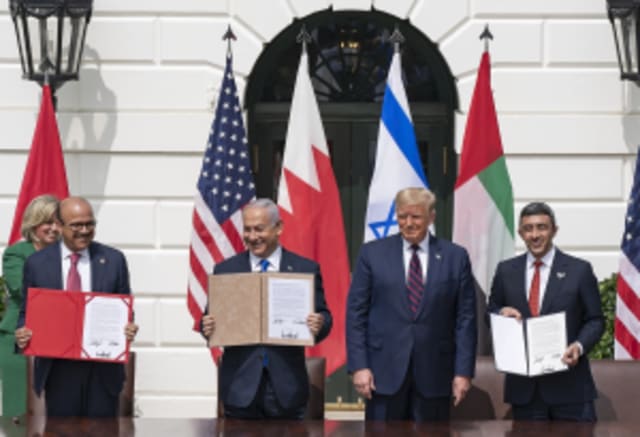Iran nuclear talks: Trump could approve civilian nuclear program while Netanyahu insists on full dismantling
Deal possible if Iran dismantles all equipment under American supervision, says Netanyahu

Ahead of the nuclear talks between the U.S. and Iran, set for Saturday, new reports have shed light on the surprising announcement of the talks during a press briefing by President Donald Trump and Israeli Prime Minister Benjamin Netanyahu on Monday.
Israel’s Channel 12 News reported that Netanyahu’s team was blindsided by the announcement, with White House envoy Steve Witkoff updating the prime minister only hours before the meeting with Trump. The Israeli side reportedly thought the surprise invitation to Washington came to discuss the tariff issue.
In addition, Netanyahu did not receive assurances that Israel’s demands would be met during the talks or that military action would follow if Iran failed to comply with a potential agreement.
The Jerusalem Post on Tuesday cited informed sources who said that Trump could allow the Iranian regime to maintain a civilian nuclear program for electricity production, which could include the reactor in Bushehr.
“Trump said Iran will not have nuclear weapons. Military nuclear facilities – no; civilian nuclear – yes,” the source said.
🚨 NEW: Details on Netanyahu's-Trump Iran meeting, @Jerusalem_Post
— Amichai Stein (@AmichaiStein1) April 8, 2025
🚨 Iran will be allowed to maintain a civilian nuclear program for electricity generation, such as the Bushehr reactor, even if it must completely dismantle its current nuclear program.
🚨 A source familiar with…
Netanyahu, meanwhile, brought up the example of Libya as a country that voluntarily allowed the dismantling of its nuclear program. “Netanyahu spoke at length during the meeting with Trump about the Libyan model – but Trump did not promise to adopt it,” the source added.
Israeli sources told the Jerusalem Post that “the likelihood of the Iranians agreeing to a nuclear deal based on the Libyan model is very, very low.”
However, the sources added, “The impression is that Trump is serious about his threats, meaning if there’s no agreement, he will act against the nuclear program with military means.”
Before boarding the plane back home to Israel on Tuesday, Netanyahu stated that he and Trump agreed “that Iran will not have nuclear weapons.”
“This can be done by agreement, but only if this agreement is Libyan style: They go in, blow up the installations, dismantle all of the equipment, under American supervision and carried out by America – this would be good.”
“The second possibility, that will not be, is that they drag out the talks and then there is the military option. Everyone understands this. We spoke about this at length,” the prime minister said.
Despite Trump reportedly not giving Netanyahu assurances in private, U.S. State Department spokeswoman Karoline Leavitt reiterated the military threat if the talks fail.
“If they don’t choose to move forward with diplomacy and a deal, which is the direction we do see them headed in, there will be grave consequences,” Leavitt said.
Meanwhile, it remains unclear whether the talks set for Saturday in Oman will be conducted directly, as Trump said in his statement, or indirectly, as Iran’s Foreign Minister Abbas Araghchi said in a Washington Post essay.
According to Kasra Aarabi, an expert on the Iranian regime at the United Against Nuclear Iran (UANI) think tank, it is in the regime’s interest to downplay the talks in order to calm its supporters.
Jason Brodsky, policy director at United Against Nuclear Iran, predicts tension at this weekend’s #US-#Iran talks in Oman, with Washington pushing for swift negotiations while Tehran aims to drag out the process to buy time. #nuclear #WNews pic.twitter.com/abHPnpcvqh
— Al Arabiya English (@AlArabiyaEng) April 8, 2025
“News of direct talks with Trump will enrage the ‘hard base’ of Iran’s regime, which views this as appeasing Soleimani’s murderer. Khamenei can’t simply ignore the ‘hard base’ as they make up the regime’s foot soldiers – their disillusionment could result in an Assad-style collapse,” Aarabi wrote on 𝕏.
Jason Brodsky, the policy director at UANI, also said Iran is portraying the talks as indirect and he estimates that it will try to drag out the talks to buy the regime some time.
However, Channel 12 reported that Trump indicated to the Israeli delegation that he would allocate only 60 days for the new negotiations, starting with the meeting on Saturday.

The All Israel News Staff is a team of journalists in Israel.
You might also like to read this:















